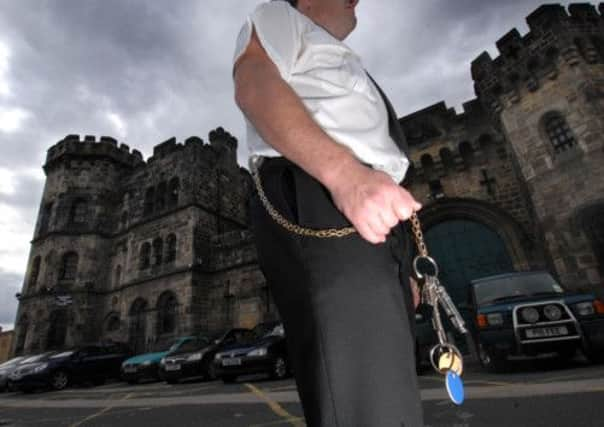A lack of conviction about worth of community sentences


In February a man walked out of court in Leeds having admitted drink-driving. He had been given a community order, 140 hours’ unpaid work and £150 in fines and costs.
Although he was twice the legal alcohol limit it was not an unusual punishment for what, on the spectrum of offending, is a relatively minor crime. Except that, in this case, it was the 46-year-old man’s seventh conviction for the same offence.
Advertisement
Hide AdAdvertisement
Hide AdMagistrates said their hands were tied by comments made by a crown court judge at a previous hearing. He had said that the maximum sentence for drink driving – six months in prison – would not be an effective way of getting the man to change.
In the same month the Centre for Crime Prevention suggested community sentences failed to stop reoffending. Figures obtained from the Ministry of Justice showed that more than three-quarters of prisoners in England and Wales last year had at least one previous community sentence to their name.
However, figures compiled by West Yorkshire Probation Service suggest that those who are sent to prison are marginally more likely to err again after their release than those who are not locked up in the first place.
Between October 2010 and September 2011, 35.2 per cent of all criminals in West Yorkshire reoffended, compared with 35.4 per cent of those who had been released from prison.
Advertisement
Hide AdAdvertisement
Hide AdClare Maguire, team manager for the probation service’s Wakefield Court Team, said prison sentences were useful in keeping the public safe – but often failed to reform criminals whose offending was driven by problems like alcoholism or drug addiction.
“Prison doesn’t address the root cause of the problem,” she said. “Take a woman who has a child and a council house and is a prolific shoplifter. She might get a sentence of 12 months, which keeps her out of trouble for that time, but when she comes out she might have lost ties with her children and family, lost her accommodation.
“It is likely to be better for everyone in the long term if she was kept in the community and given the support and tools to change her life. A lot of people who have been through the system before would much rather go to prison.
“In the community they have to attend appointments, engage with officers, undertake unpaid work. It’s more of a burden and it lasts far longer, but also out of that there can be positive things – they can be provided with the tools to make changes.”
Advertisement
Hide AdAdvertisement
Hide AdThose with the job of passing sentence are often caught on the horns of a dilemma. “We look at somebody’s previous offending history and how they have complied with orders in the past as well as looking at the risk they would pose to other people,” said Peter Chapman, chairman of the magistrates’ association sentencing committee and a magistrate for more than a decade.
“But someone can’t be given a long sentence if they are committing low-level offences.
“There’s no silver bullet that anyone can fire at crime but I think community sentences are very useful. They allow individuals to make changes with support and give people the ability to make those changes if they are willing.”
Others disagree. Peter Cuthbertson, director for the Centre for Crime Prevention which published February’s report, branded community sentences “a major threat to public safety”.
Advertisement
Hide AdAdvertisement
Hide AdThe anecdotal evidence of those who have undergone community services is mixed, but for one 49-year-old former security guard from Pontefract it did prove a turning point.
Three years ago he pleaded guilty to assaulting a man in a pub, causing him actual bodily harm.
While the offence carries a maximum sentence of five years, the judge showed leniency instead ordering him to do 200 hours of community service.
“I wouldn’t have been able to cope if I’d gone to prison,” he says. “I’d never been in trouble before and I don’t think it would have done me any good.”
Advertisement
Hide AdAdvertisement
Hide AdHe was given work painting before being moved to the canteen at the National Coal Mining Museum near Wakefield.
Such was his commitment, that he now works as a peer mentor for others given community sentences and has secured paid work in a hotel.
“People say community sentences are a soft option, but that’s only the case if you get your head down and do what you’re told to do,” he said. “If you don’t then they don’t make life easy for you and you get nowhere.”